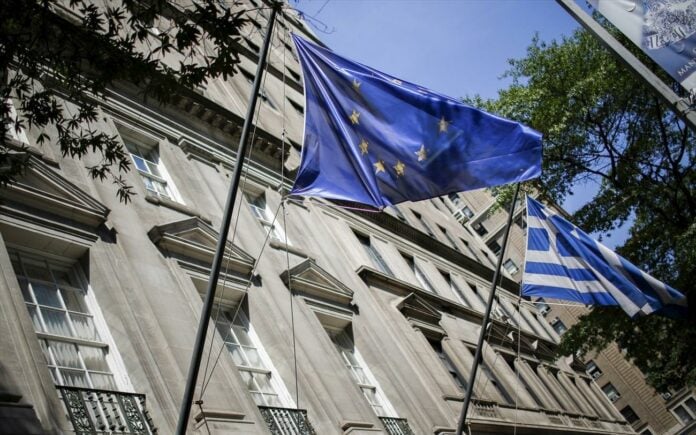By T. Tsiros
[email protected]
Greece’s (third) memorandum obligations again come into the picture, beginning on Monday, with the Euro Working Group serving as the first venue where the country’s commitments to institutional creditors will come under scrutiny in order to conclude the third review of the ongoing bailout program.
The second review of the Greek program was mired in delays and gasping negotiations, off target by a year and a half from a projected date for conclusion. This time, however, the increasingly unpopular leftist-rightist coalition government led by Alexis Tsipras can ill afford any delays.
Creditors’ auditors are set to return to Athens within the first 10 days of September in order to lay the groundwork for the third review, with a final agenda of pending issues and a timetable for implementation expected – if everything goes as planned – to be finalized at a Sept. 15 Eurogroup meeting.
Creditors’ top representatives, however, are due back in Athens a month later, in mid October, which means after the German federal election and, possibly, the formation of a new German government. The return of creditors’ top negotiators will also come after the annual meeting of the World Bank Group and the International Monetary Fund in Washington, D.C.
Initial planning puts the deadline for concluding the third review in mid November 2017, or at the latest, by early December 2017, so that the country’s financing by the ESM continues unhindered until the bailout officially ends in August 2018.
All sides involved in the current bailout – the third in succession – have declared that a fourth memorandum is out of the question, including the still-bailout dependent Greek government.
Looking ahead to Monday’s Euro Working Group meeting, the Greek side must provide data on the course of covering state arrears to the private sector, a necessary condition for freeing up an 800-million-euro chunk of a previous tranche of bailout money held up by creditors last July.
Just as importantly, the Greek government must brief creditors on implementation of a bevy of “prior actions” – or “key deliverables” as the EU Commission terms them — that should have been concluded over the summer.
Nevertheless, this is where the first “sticking point” arises, given that creditors are expected to point out that “significant delays” in implementing several prior actions have been recorded.
Creditors’ auditors will determine whether or not the “key deliverables” Athens promised to deliver have been implemented. Creditors’ staff-level delegations may even extend their stay in Athens after the Sept. 15 Eurogroup meeting in Tallinn.
Of particular importance is the IMF’s stance, as the Fund is viewed as the “strictest” party involved in the Greek bailout, as some reports hold that the IMF remains unconvinced that Greece can achieve a primary budget surplus of 3.5 percent of expected GDP in 2018, which would translate into roughly 6.6 billion euros.
Reports out of Washington and Brussels over the past few days stress that the IMF delegation may table three major issues in coming negotiations over the third review, including a demand to slash whatever remaining tax breaks as of 2019, instead of 2020. Another possible IMF demand, and one that will entail the loss of much of the Tsipras government’s remaining “political capital”, is to delay implementation of various “offset” social spending measures for 2023. Such a postponement would, in essence, coincide with a yearly primary budget surplus target of 2 percent of GDP, down from the memorandum-mandated 3.5 percent obligation of prior years.
However, general elections in Greece are scheduled for 2019, assuming another snap election isn’t declared in the meantime. With ruling SYRIZA party trailing the main opposition center-right party by as much as double percentage points in all mainstream opinion poll, any postponement of the “positive measures” would be devastating for what’s left of the mostly leftist government’s communications strategic.
Finally, the IMF is reportedly pressuring for another 10 billion euros in capitalization for Greece’s already thrice recapitalized systemic banks, a prospect sternly opposed by the ECB.














